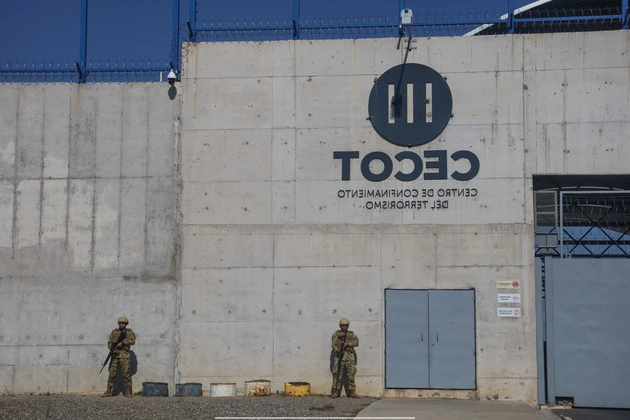
A federal judge ruled Wednesday that nearly 140 Venezuelan men flown from the U.S. to El Salvador in March based on a wartime power invoked by President Donald Trump were deported illegally, but the court stopped short of ordering the Trump administration to seek to bring the men back.
Chief U.S. District Judge James Boasberg gave the administration a week to propose a plan for how the men — believed to currently be in a notorious anti-terrorism prison in El Salvador — can pursue cases in U.S. courts challenging their deportations.
Legal Ramifications of the Deportations
“Mindful of national-security and foreign-policy concerns, the Court will not — at least yet — order the Government to take any specific steps. It will instead allow Defendants to submit proposals regarding the appropriate actions,” Boasberg wrote in a 69-page opinion.
But Boasberg said the Trump administration had plainly violated the rights of the men it summarily deported to El Salvador on March 15 just hours after Trump invoked the Alien Enemies Act. The 1798 statute has been used just three other times in U.S. history and is meant to hasten deportations during wartime.
Those men, who Trump claimed were members of the Venezuelan gang Tren de Aragua, had no chance to contest their designations — a fact that several courts, including the Supreme Court, have determined violated their due process rights.
Humanitarian Concerns in El Salvador
For the men in El Salvador’s infamous prison, known as CECOT, that violation is most egregious, Boasberg said.
“Significant evidence has come to light indicating that many of those entombed in CECOT have no connection to the gang and thus languish in a foreign prison on flimsy, even frivolous, accusations,” Boasberg wrote.
On the day the men were deported in March, Boasberg issued an emergency order for U.S. officials to keep the men in their custody and to turn the planes carrying them around, if necessary. However, the planes continued to their destination and — under Hollywood-style lights and rolling cameras — the men were turned over to Salvadoran authorities who made a spectacle of shaving the prisoners’ heads and stripping them.
Legal Battles and Contempt Proceedings
In April, Boasberg ruled that there was probable cause to believe that Trump administration officials deliberately flouted his order. He ordered the first phases of contempt-of-court proceedings that could result in criminal charges for individual officials who allegedly defied his directive, but an appeals court paused that process.
As a result of his handling of the high-profile deportation dispute, Boasberg has become a lightning rod for criticism from Trump and his allies. In March, Trump called for Boasberg’s impeachment and denounced him on social media as a “Radical Left Lunatic,” although the Obama appointee is widely viewed as moderate and mild-mannered.
The Supreme Court ultimately ruled, apparently unanimously, that Alien Enemies Act deportees are entitled to enough notice and time to “actually seek” relief in court to block their deportations. However, the high court voted, 5-4, that Boasberg should not have handled the original lawsuit brought by the March 15 deportees. Rather, they should have filed in the Texas district in which they were confined in the days before they were sent to El Salvador.
Continued Legal Challenges
But those already deported no longer have a geographically obvious U.S. court to take up their claims, so lawyers for the men have pressed Boasberg to allow them to continue to seek relief from him in Washington, D.C. In the ruling Wednesday, he agreed.
Several other courts have backed up Boasberg’s concerns about the administration’s handling of deportations under the Alien Enemies Act. Judges in Texas, Colorado and New York have agreed that the invocation of the Alien Enemies Act was flawed because the United States is not at war with Venezuela, nor is Tren de Aragua plausibly an arm of the Venezuelan government. Judges in Pennsylvania and California backed Trump’s invocation of the law but said the Trump administration had nevertheless failed to give its targets enough time to contest their designations.
“The court properly ruled that the Trump administration must fix its blatant constitutional violations and cannot simply chose to leave these individuals in a foreign gulag-type prison, perhaps incommunicado for the remainder of their lives,” ACLU attorney Lee Gelernt said after Boasberg’s Wednesday ruling.











